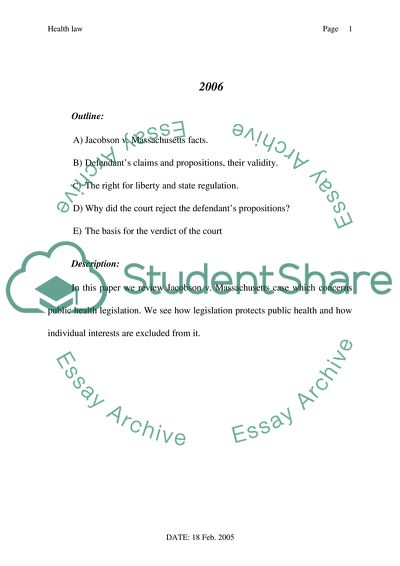Cite this document
(Jacobson vs Massachusetts Case - Public Health Legislation Study Example | Topics and Well Written Essays - 1750 words, n.d.)
Jacobson vs Massachusetts Case - Public Health Legislation Study Example | Topics and Well Written Essays - 1750 words. https://studentshare.org/law/1703269-health-law
Jacobson vs Massachusetts Case - Public Health Legislation Study Example | Topics and Well Written Essays - 1750 words. https://studentshare.org/law/1703269-health-law
(Jacobson Vs Massachusetts Case - Public Health Legislation Study Example | Topics and Well Written Essays - 1750 Words)
Jacobson Vs Massachusetts Case - Public Health Legislation Study Example | Topics and Well Written Essays - 1750 Words. https://studentshare.org/law/1703269-health-law.
Jacobson Vs Massachusetts Case - Public Health Legislation Study Example | Topics and Well Written Essays - 1750 Words. https://studentshare.org/law/1703269-health-law.
“Jacobson Vs Massachusetts Case - Public Health Legislation Study Example | Topics and Well Written Essays - 1750 Words”. https://studentshare.org/law/1703269-health-law.


